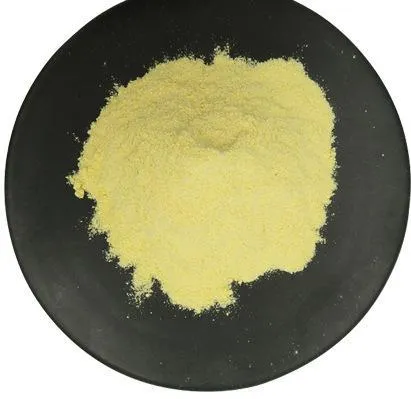Warning: Undefined array key "title" in /home/www/wwwroot/HTML/www.exportstart.com/wp-content/themes/1198/header.php on line 6
Warning: Undefined array key "file" in /home/www/wwwroot/HTML/www.exportstart.com/wp-content/themes/1198/header.php on line 7
Warning: Undefined array key "title" in /home/www/wwwroot/HTML/www.exportstart.com/wp-content/themes/1198/header.php on line 7
Warning: Undefined array key "title" in /home/www/wwwroot/HTML/www.exportstart.com/wp-content/themes/1198/header.php on line 7
- Afrikaans
- Albanian
- Amharic
- Arabic
- Armenian
- Azerbaijani
- Basque
- Belarusian
- Bengali
- Bosnian
- Bulgarian
- Catalan
- Cebuano
- China
- China (Taiwan)
- Corsican
- Croatian
- Czech
- Danish
- Dutch
- English
- Esperanto
- Estonian
- Finnish
- French
- Frisian
- Galician
- Georgian
- German
- Greek
- Gujarati
- Haitian Creole
- hausa
- hawaiian
- Hebrew
- Hindi
- Miao
- Hungarian
- Icelandic
- igbo
- Indonesian
- irish
- Italian
- Japanese
- Javanese
- Kannada
- kazakh
- Khmer
- Rwandese
- Korean
- Kurdish
- Kyrgyz
- Lao
- Latin
- Latvian
- Lithuanian
- Luxembourgish
- Macedonian
- Malgashi
- Malay
- Malayalam
- Maltese
- Maori
- Marathi
- Mongolian
- Myanmar
- Nepali
- Norwegian
- Norwegian
- Occitan
- Pashto
- Persian
- Polish
- Portuguese
- Punjabi
- Romanian
- Russian
- Samoan
- Scottish Gaelic
- Serbian
- Sesotho
- Shona
- Sindhi
- Sinhala
- Slovak
- Slovenian
- Somali
- Spanish
- Sundanese
- Swahili
- Swedish
- Tagalog
- Tajik
- Tamil
- Tatar
- Telugu
- Thai
- Turkish
- Turkmen
- Ukrainian
- Urdu
- Uighur
- Uzbek
- Vietnamese
- Welsh
- Bantu
- Yiddish
- Yoruba
- Zulu
syys . 29, 2024 02:10 Back to list
Understanding Aspartame and Its Connection to Phenylalanine in Food Products
Aspartame and Phenylalanine Understanding the Connection
Aspartame is a widely used artificial sweetener, popular for its calorie-free sweetness and ability to enhance flavor without contributing to the calorie count. It is often found in various products ranging from soft drinks and chewing gum to sugar-free desserts. However, aspartame has garnered attention not only for its sweetness but also for its chemical composition, which includes phenylalanine, an amino acid that plays a crucial role in our body's metabolic processes.
Aspartame and Phenylalanine Understanding the Connection
PKU affects the body’s ability to metabolize phenylalanine properly. Individuals with this condition cannot break down phenylalanine due to a deficiency in the enzyme phenylalanine hydroxylase. As a result, consuming high levels of phenylalanine can lead to a buildup in the blood, which can cause serious neurological problems, developmental delays, and cognitive impairments. This risk underscores the importance of monitoring dietary intake not only of foods rich in phenylalanine but also of products containing aspartame.
aspartame fenilalanina

As a response to the potential health risks associated with phenylalanine consumption, regulations and labeling guidelines have been established. In many countries, products containing aspartame must carry a warning label indicating that they contain phenylalanine. This is crucial for individuals with PKU, allowing them to make informed choices about the foods and beverages they consume.
Moreover, the safety of aspartame has been the subject of extensive research. Regulatory bodies such as the U.S. Food and Drug Administration (FDA) and the European Food Safety Authority (EFSA) have deemed aspartame safe for the general population, provided that it is consumed within recommended limits. These organizations continue to monitor ongoing research to ensure public safety and to provide updated guidelines as necessary.
In conclusion, while aspartame offers a sugar alternative for many people looking to reduce calorie intake, the presence of phenylalanine necessitates caution for those with PKU. For the majority of consumers, aspartame is considered safe, but awareness and understanding of its components are essential for making informed dietary choices. As with any food additive, moderation is key, and individuals should always consult healthcare professionals if they have concerns regarding aspartame or phenylalanine in their diets.
Latest news
-
Certifications for Vegetarian and Xanthan Gum Vegetarian
NewsJun.17,2025
-
Sustainability Trends Reshaping the SLES N70 Market
NewsJun.17,2025
-
Propylene Glycol Use in Vaccines: Balancing Function and Perception
NewsJun.17,2025
-
Petroleum Jelly in Skincare: Balancing Benefits and Backlash
NewsJun.17,2025
-
Energy Price Volatility and Ripple Effect on Caprolactam Markets
NewsJun.17,2025
-
Spectroscopic Techniques for Adipic Acid Molecular Weight
NewsJun.17,2025

